Education
Ciee Launches Social Media Campaign Celebrating the Brilliance of Frederick Douglass Global Fellows and The Benefits of Studying Abroad
LOS ANGELES SENTINEL — Data recently released by the Institute of International Education found that less than 30 percent of the 332,727 students who studied abroad in 2017 were students of color.
By Sentinel News Service
The Council on International Educational Exchange (CIEE) launched a social media campaign – #CIEEmpower #MSInspirational #FrederickDouglassGlobalFellows – to share the personal reflections of 20 extraordinary students who have studied abroad in the Frederick Douglass Global Fellowship program, which is sponsored jointly by CIEE and the Penn Center for Minority Serving Institutions.
Each year, the Frederick Douglass Global Fellowship awards 10 students from the nation’s 600-plus Minority Serving Institutions (MSIs) full scholarships to a summer study abroad program designed to enhance their leadership and intercultural communication skills. Named in honor of Frederick Douglass, the renowned African American social reformer, abolitionist, orator, writer and international statesman, the Fellowship was launched in 2017.
A goal of this social media campaign is to showcase the diverse stories of the Frederick Douglass Global Fellows, in the hopes that students of many different ethnic, socioeconomic, and academic backgrounds will see someone like themselves who has had a life-changing study abroad experience and will be inspired to apply for a 2019 Frederick Douglass Global Fellowship. The campaign launched with a video testimonial from Carmen Crusoe, a junior at Howard University. The public is asked to view and share her inspirational video.
In addition to Crusoe, the campaign will also highlight the experiences of the following students:
2018 Frederick Douglass Fellows – Studied in Cape Town, South Africa
- Chiagoziem Agu, Albany State University
- Joshua Blackwell, North Carolina Agricultural and Technical State University
- Andres Colmenares, Miami Dade College
- Darielis Cruz, Mercy College
- Juan Jose Duran, California State University, San Marcos
- Kloe Harris, Lincoln University, Missouri
- Malena Her, California State University, Sacramento
- DeVon Jackson, Virginia State University
- Jorian Reeves, Xavier University of Louisiana
2017 Frederick Douglass Fellows – Studied in London, England
- Georgina Aguilar, University of California, Santa Barbara
- Brennan Edwards, Lincoln University of Missouri
- Trey Hawkins, Howard University
- Chinwendu Maduegbunam, Fayetteville State University
- Vincent Owoseni, Paul Quinn College
- Mayra “Kahori” Vidana Sanchez
- Zakiya Smith, University of Texas in El Paso
- Meghan Sowersby, Cheyney University of Pennsylvania
- Meghan Sowersby, Cheyney University of Pennsylvania
- Katherine Tran, University of Texas at San Antonio
- Peire Wilson, LaGuardia Community College
Data recently released by the Institute of International Education found that less than 30 percent of the 332,727 students who studied abroad in 2017 were students of color, and only 6.1 percent were African Americans. The Frederick Douglass Global Fellowship was designed to break down barriers of cost, curriculum, and culture to make study abroad programs more accessible to students traditionally underrepresented in study abroad.
Students selected for the 2019 Frederick Douglass Global Fellowship will participate in an intensive four-week, three credit summer study abroad program at CIEE’s London Global Institute. New this year, all qualified students who apply for the Frederick Douglass Global Fellowship but are not selected as Fellows will still receive $1,500 grants toward select study abroad programs.
Chiagoziem Agu, a 20-year-old student at Albany State University, called his experience as a 2018 Frederick Douglass Fellow in Cape Town, South Africa, “nothing short of amazing, intellectually challenging, and overall enlightening.”
“In a four-week span, I was afforded the opportunity to engage in some of the most necessary and thought-provoking conversations I have ever had with some of the brightest minds,” Chiagoziem said. “Every day, I was exposed to something different.”
Online applications for the 2019 Frederick Douglass Global Fellowship are due by February 14, 2019, and can be found HERE. Applicants must be freshmen or sophomores from MSI institutions listed HERE and the additional requirements are HERE.
Student’s interested in applying should reach out to the Penn Center’s Associate Director for Programs, Paola Esmieu, at pesmieu@gse.upenn.edu with any questions.
This article originally appeared in the Los Angeles Sentinel.
Activism
Oakland Schools Honor Fred Korematsu Day of Civil Liberties
Every Jan. 30, OUSD commemorates the legacy of Fred Korematsu, an Oakland native, a Castlemont High School graduate, and a national symbol of resistance, resilience, and justice. His defiant stand against racial injustice and his unwavering commitment to civil rights continue to inspire the local community and the nation. Tuesday was “Fred Korematsu Day of Civil Liberties and the Constitution” in the state of California and a growing number of states across the country.

By Post Staff
Every Jan. 30, OUSD commemorates the legacy of Fred Korematsu, an Oakland native, a Castlemont High School graduate, and a national symbol of resistance, resilience, and justice.
His defiant stand against racial injustice and his unwavering commitment to civil rights continue to inspire the local community and the nation. Tuesday was “Fred Korematsu Day of Civil Liberties and the Constitution” in the state of California and a growing number of states across the country.
One OUSD school is named in his honor: Fred T. Korematsu Discovery Academy (KDA) elementary in East Oakland.
Several years ago, founding KDA Principal Charles Wilson, in a video interview with anti-hate organization “Not In Our Town,” said, “We chose the name Fred Korematsu because we really felt like the attributes that he showed in his work are things that the children need to learn … that common people can stand up and make differences in a large number of people’s lives.”
Fred Korematsu was born in Oakland on Jan. 30, 1919. His parents ran a floral nursery business, and his upbringing in Oakland shaped his worldview. His belief in the importance of standing up for your rights and the rights of others, regardless of race or background, was the foundation for his activism against racial prejudice and for the rights of Japanese Americans during World War II.
At the start of the war, Korematsu was turned away from enlisting in the National Guard and the Coast Guard because of his race. He trained as a welder, working at the docks in Oakland, but was fired after the bombing of Pearl Harbor in 1941. Fear and prejudice led to federal Executive Order 9066, which forced more than 120,000 Japanese Americans out of their homes and neighborhoods and into remote internment camps.
The 23-year-old Korematsu resisted the order. He underwent cosmetic surgery and assumed a false identity, choosing freedom over unjust imprisonment. His later arrest and conviction sparked a legal battle that would challenge the foundation of civil liberties in America.
Korematsu’s fight culminated in the Supreme Court’s initial ruling against him in 1944. He spent years in a Utah internment camp with his family, followed by time living in Salt Lake City where he was dogged by racism.
In 1976, President Gerald Ford overturned Executive Order 9066. Seven years later, the 9th Circuit Court of Appeals in San Francisco vacated Korematsu’s conviction. He said in court, “I would like to see the government admit that they were wrong and do something about it so this will never happen again to any American citizen of any race, creed, or color.”
Korematsu’s dedication and determination established him as a national icon of civil rights and social justice. He advocated for justice with Rosa Parks. In 1998, President Bill Clinton gave him the Presidential Medal of Freedom saying, “In the long history of our country’s constant search for justice, some names of ordinary citizens stand for millions of souls … To that distinguished list, today we add the name of Fred Korematsu.”
After Sept. 11, 2001, Korematsu spoke out against hatred and discrimination, saying what happened to Japanese Americans should not happen to people of Middle Eastern descent.
Korematsu’s roots in Oakland and his education in OUSD are a source of great pride for the city, according to the school district. His most famous quote, which is on the Korematsu elementary school mural, is as relevant now as ever, “If you have the feeling that something is wrong, don’t be afraid to speak up.”
Community
Teacher Mentoring Program Receives James Irvine Leadership Award
Leaders at Oakland-based Reach University, Dr. Elizabeth Baham and Héctor Camacho Jr, have been honored with the James Irvine Leadership Award for their work on addressing California’s teacher shortage through job-embedded curriculum and credential programs. With the award, each organization receives a grant of $350,000 and additional resources.
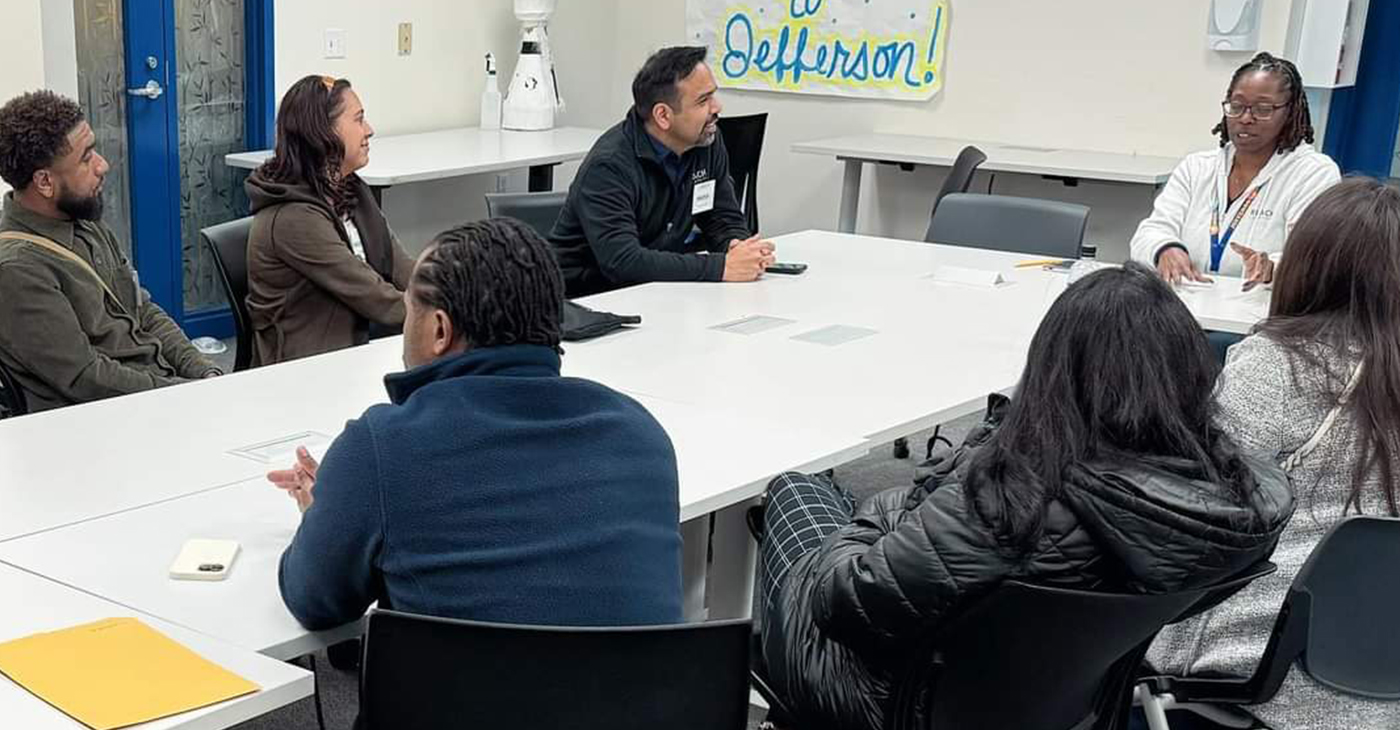
By Magaly Muñoz
Leaders at Oakland-based Reach University, Dr. Elizabeth Baham and Héctor Camacho Jr, have been honored with the James Irvine Leadership Award for their work on addressing California’s teacher shortage through job-embedded curriculum and credential programs. With the award, each organization receives a grant of $350,000 and additional resources.
Dr. Baham and Mr. Camacho, who have been at Reach for nine years and two years respectively, have been instrumental in attracting and recruiting future educators who otherwise would not have a clear and affordable path into teaching or leadership positions.
Established in 2006, Reach University has served as the nation’s first and only accredited nonprofit university, dedicated to advancing undergraduate and graduate degrees and credentials.
“To be recognized for this work so publicly, has given me more strength to keep [fighting] because it’s a lot of work. I’m super honored and appreciative of [the James Irvine Foundation] for giving me this new burst of energy because it’s a tough field,” Camacho said.
Baham echoed Camacho’s sentiments and is grateful that the work they are doing is being recognized by a larger audience.
“It’s an acknowledgement of the work that I’ve put in and it’s an acknowledgement that teachers matter, that education matters. I think that at the end of the day, people see both Hector and I representing Reach University and they walk away with a sense of teaching matters,” Baham said.
The university primarily partners with K-12 school districts to provide potential teacher candidates who specialize in subjects such as liberal arts, math, science of reading, and computer science.
Camacho, Dean of Admissions and SVP of Workforce Development, praised the university’s methodology in allowing candidates already employed in a school either part or full time, as a teacher-aides or paraprofessionals, to earn college credit while mastering the art of teaching.
Camacho highlighted the challenges that many face when seeking higher education, such as taking a break from school to work and afford their degree or going directly into college and amassing large amounts of debt to solely focus on their studies.
“Let’s honor and recognize the work that they’re doing in the schools right now. Give them some college credit and then give them the other coursework they need to finish it because we know you shouldn’t have to choose anymore,” Camacho said.
Students at Reach University are paid to earn a degree, and undergraduates take on zero student debt. After grants and institutional scholarships, the out-of-pocket contribution for all full-time undergraduate candidates is $900 per year, or $75 per month, with no student debt, according to Reach officials.
Half of the program candidates are made up of people of color, matching the demographics of the schools they are working in. The large majority are also first-generation college students and some from low-income backgrounds.
Baham, Provost & Chief Academic Officer, stated the importance of having educators of color in classrooms because it not only allows for students of color to see themselves in authority positions, but also integrates what the world looks like for those who are not surrounded by diversity in their everyday lives.
She added that diversity at all levels of academia results in success and encouragement for everyone to strive for more.
“It’s important for [students] to see us occupying spaces where they will want to see themselves,” Baham said.
Reach students are taught in group setting classrooms twice a week and through one-on-one mentoring to better assist with individual needs. This approach allows students to network with other classmates to problem-solve similar obstacles and receive personalized coaching to refine their teaching skills.
With job-embedded curriculum being the set form of learning for Reach, many of the students have a clearer transition from degree to career pipeline. 84% of California alumni are still in the classroom five years after completing the graduate program and nearly 91% are still working in a school.
Tysha Hayes, a Reach student, works as a bus driver for Jefferson Union High School District and part-time in the classroom as a part of her degree program. She entered the university in fall 2023 and is hoping to graduate by 2027.
Hayes shared that the non-traditional learning aspect of Reach is what drew her to enroll, as she herself has had an unconventional journey from being a bus driver for 27 years to pursuing a career in education.
The job allows Hayes to be involved in her students’ lives in a more personal way. She explained that her face is the first and last one they see on their way back and forth to school, often prompting them to share their classroom frustrations and struggles with her.
“The bus has been my classroom with the students, so I get the best of both worlds. I get to see them in different elements throughout the whole day,” Hayes said.
Post-graduation, Hayes intends to work in health and wellness so that she can help guide and assist students who are feeling overwhelmed or unmotivated in their education to work through their struggles and strive for more.
Hayes says although she got a late start in life, the prospect of building interpersonal relationships with her students in and outside the classroom excites her to keep working towards her degree.
California Black Media
Yahushua’s Law: Senate Advances Bill to Protect Students from Extreme Weather
In a significant move towards student safety, the California Senate Education Committee passed Senate Bill (SB) 1248, also known as Yahushua’s Law, on April 3. The bill is named in memory of Yahushua Robinson, a 12-year-old student from Lake Elsinore, who tragically died due to a heat-related illness during a physical education class in 2023. It is a pioneering effort to prevent similar incidents in the future.

By California Black Media
In a significant move towards student safety, the California Senate Education Committee passed Senate Bill (SB) 1248, also known as Yahushua’s Law, on April 3.
The bill is named in memory of Yahushua Robinson, a 12-year-old student from Lake Elsinore, who tragically died due to a heat-related illness during a physical education class in 2023. It is a pioneering effort to prevent similar incidents in the future.
Authored by Senator Melissa Hurtado (D-Bakersfield) and co-authored by Assemblymember Akilah Weber, M.D. (D-La Mesa), SB 1248 directs the California Department of Education to develop comprehensive guidelines for schools regarding student activity during all extreme weather conditions.
“No student should ever lose their life on campus to extreme weather when we can take steps to protect them by preparing statewide plans to minimize exposure to the most harmful elements of exposure,” Hurtado said after introducing SB 1248.
The bill stipulates that schools must implement safety measures which include monitoring weather forecasts, postponing or relocating outdoor activities during hazardous conditions, and ensuring students have proper hydration and access to shade. It also requires schools to establish clear communication plans to keep parents, teachers, and students informed about potential weather hazards.
Supporters of the bill include the Robinson family, advocate Christina Laster, Bold Enterprises LLC, California Black Women’s Collective Empowerment Institute, Familias Empoderadas del Valle Central National Action Network, The Black Student Advocate, and the Ventura County Alumnae Chapter of Delta Sigma Theta Sorority.
Thanking Hurtado for introducing this crucial legislation, Weber said, “The story of Yahushua Robinson last year was heartbreaking. We have protections for farm workers and other industries in the case of extreme weather, now climate change is forcing us to also extend similar protections to students at school.”
-

 Activism4 weeks ago
Activism4 weeks agoOakland Post: Week of March 20 – 26, 2024
-

 #NNPA BlackPress3 weeks ago
#NNPA BlackPress3 weeks agoCOMMENTARY: D.C. Crime Bill Fails to Address Root Causes of Violence and Incarceration
-

 #NNPA BlackPress3 weeks ago
#NNPA BlackPress3 weeks agoMayor, City Council President React to May 31 Closing of Birmingham-Southern College
-

 #NNPA BlackPress3 weeks ago
#NNPA BlackPress3 weeks agoCOMMENTARY: Lady Day and The Lights!
-

 #NNPA BlackPress3 weeks ago
#NNPA BlackPress3 weeks agoFrom Raids to Revelations: The Dark Turn in Sean ‘Diddy’ Combs’ Saga
-

 #NNPA BlackPress3 weeks ago
#NNPA BlackPress3 weeks agoBaltimore Key Bridge Catastrophe: A City’s Heartbreak and a Nation’s Alarm
-

 #NNPA BlackPress3 weeks ago
#NNPA BlackPress3 weeks agoBaltimore’s Key Bridge Struck by Ship, Collapses into Water
-

 Activism3 weeks ago
Activism3 weeks agoOakland Post: Week of March 27 – April 2, 2024


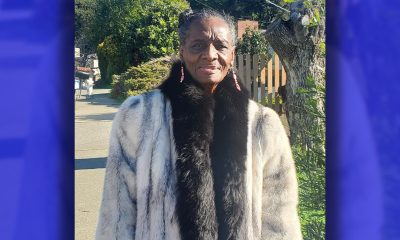

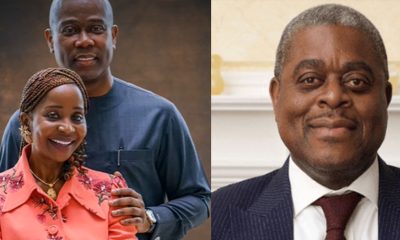



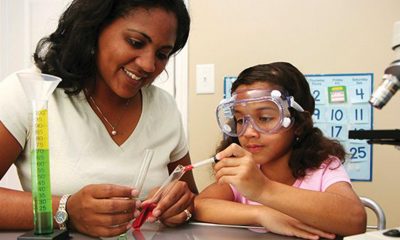

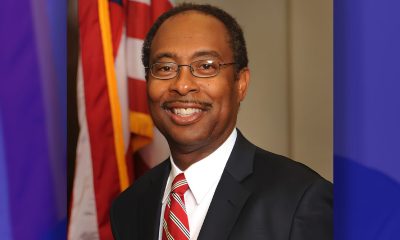

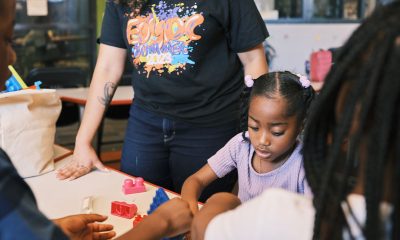









































Pingback: Ciee Launches Social Media Campaign Celebrating The Brilliance Of Frederick Douglass Global Fellows & The Benefits Of Studying Abroad | BlackPressUSA #Frederick_Douglass - NewsTakers